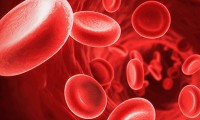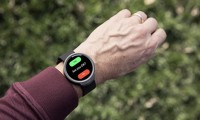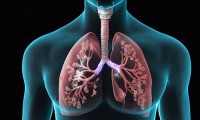-
Anxiety, Depression Increased Chances of Cardiac Arrest & Stroke
- Source: Reuters
- 1,080
- August 30, 2018
-
Siemens gets FDA Clearance for Troponin Assay
- Source: FierceBiotech
- 1,329
- July 27, 2018
-
XANTUS Programme Confirms Low Bleeding and Low Stroke Rate with Xarelto® in Patients with Atrial Fibrillation
- Source: WorldPharmaNews
- 840
- July 14, 2018
-
New iBeat’s Watch Detects Cardiac Arrests and Alerts Services
- Source: MobiHealthNews
- 874
- July 13, 2018
-
6 Warning Signs of Heart Attacks
- Source: HealthForU
- 828
- July 11, 2018
-
New AI system for lung cancer and heart disease
- Source: Digital Journal
- 1,266
- January 15, 2018
-
Starting new COPD inhaler tied to heart attack risk
- Source: Reuters
- 718
- January 3, 2018
-
Researchers 3D-Print Patch That Heal Heart After Heart Attack
- Source: mindsofmalady
- 918
- December 22, 2017
-
Skin may regulate blood pressure, study finds
- Source: medicalnewstoday
- 1,082
- October 27, 2017
-
This Drug Has Significant Implications for Heart Disease
- Source: newsjs
- 872
- August 31, 2017
your submission has already been received.
OK
Subscribe
Please enter a valid Email address!
Submit
The most relevant industry news & insight will be sent to you every two weeks.













